Week #24 of My Liquid Diet: My Exoskeleton
A shell of my former self.
Keeping up the (cara-)pace:
Beginning weight (July 14): 230 lbs.
Weight at Start of Week #2: 222
Weight at Start of Week #3: 218.4
Weight at Start of Week #4: 215.3
Weight at Start of Week #5: 215.1
Weight at Start of Week #6: 211.2
Weight at Start of Week #7: 208.1
Weight at Start of Week #8: 204.3
Weight at Start of Week #9: 201.9
Weight at Start of Week #10: 199
Weight at Start of Week #11: 196.8
Weight at Start of Week #12: 194.4
Weight at Start of Week #13: 193.5
Weight at Start of Week #14: 190.2
Weight at Start of Week #15: 185.6
Weight at Start of Week #16: 183.8
Weight at Start of Week #17: 182.3
Weight at Start of Week #18: 179.4
Weight at Start of Week #19: 177.6
Weight at Start of Week #20: 177.2
Weight at Start of Week #21: 173.5
Weight at Start of Week #22: 174.6
Weight at Start of Week #23: 173.7
Weight at Start of Week #24: 172.8
Weight at Start of Week #25: 171.2
Total weight loss so far: 58.8 lbs.
Three weeks to go.
“My son, we’re going to head uptown and see the biggest insect in the world!”
My dad had me for the weekend — I was in his infinitely joyous custody — which meant that my next 48-or-so hours would be spent with him demonstrating to me, as usual, that our world was full of hope and wonders.
He showed me the article in the newspaper: The most enormous bug on Earth had been captured — alive! — and brought back to our fair city.
How?!!, I wondered, thrilling to the idea of, say, a dozen brave scientists warily converging on the mega-creature and somehow subduing it.
There was no time to waste. Dad and I needed to get to the American Museum of Natural History, and lickety-split! What if, God forbid, the biggest insect in the world broke out of its cage and somehow made its way back to the Amazonian rainforest before we ever managed to see it?
In no time at all, we were out the door and walking briskly to Union Square.
With practically each step I took, the giant insect loomed larger and larger in my imagination. I mean, just regular bugs scared the bejeezus out of me! Cockroaches were abundant in my dad’s old tenement building, and they were badasses. When you turned on the light, they didn’t scatter so much as lope back towards their nooks and crevices. These dudes laughed at insecticides: Silly human, your puny spray only makes us shinier and stronger! It took all my youthful courage to step on one with my shoe — whereas my heroic father thought nothing of squashing them with his bare palm (which, admittedly, had been toughened by years of handball-playing).
As we headed down the stairs into the Union Square subway station, I reflected on something I’d recently heard on the radio: that eventually, after humanity died off — possibly due to nuclear war — our entire planet would be ruled by roaches. They’d have FAO Schwarz to themselves — all those toys to clamber on! When they took over the candy stores and figured out how to operate the soda fountains, would they favor chocolate or vanilla egg creams? And would their little insect minds be blown when they realized that egg creams contained neither eggs nor cream? What were those hominids thinking?
We had reached the turnstiles — which, as it frequently did, presented a challenge to us, as my broke-ass father preferred not to waste what little money he had on train fare. So, as usual, my dad — surprisingly athletic, despite his potbelly — simply prepared to hurdle over one of them, while I ducked under the next one. When I stood back up straight and looked for him, he wasn’t there! I turned back around and saw him in the custody of a policeman, who, with a grim expression and a tight grip on Dad’s arm, was pulling him back towards some sort of office behind the token booth.
After what seemed like hours but probably was just a few minutes, Dad emerged from the office with an official summons in hand. He stuffed it in a pocket, then rummaged around until he came up with enough change to buy a single token (children like me rode for free). I expected him to go into a rant about the evils of capitalism, but his response to his experience with the cop was surprisingly mild.
“He was just doing his job,” Dad explained. “And he was right! I hadn’t paid the fare that everyone else has to pay, which wasn’t” — he smiled at me as he leaned into a pun — “fair.”
Fortunately, the American Museum of Natural History had a pay-what-you-can admission policy for all residents of the New York/New Jersey/Connecticut Tri-State Area (and still does!), so there was no need even to contemplate turnstile-jumping there. Copious signage informed us that the largest insect in the world was to be found in an exhibit hall on the second floor.
The museum had just opened for the day, and we approached the huge, echoey hall at the rear of a dense crowd, all of us buzzing with anticipation. When we finally got inside, we saw a cube-shaped enclosure, made of what I imagined was bulletproof-strength glass, atop a pedestal. Inside it we could see a kind of terrarium: soil, rocks, a few plants. Strangely, what we didn’t see, at first, was the insect.
As others had started doing, we got up close to the glass and peered around. Eventually we spotted it, huddled on the enclosure’s floor under a small bush. The insect was grayish and about the side of my father’s fist. It seemed to be hugging itself with its numerous spindly limbs, as if in a futile attempt at warmth and protection. At first it didn’t seem to be moving at all. Was it dead? But no — every once in a while it would twitch spasmodically, before going still again.
Murmurs started spreading among the onlookers. We had expected to encounter a fearsome, ferocious creature, one that would fill us with awe and dread. Instead what we felt — at least, what I felt — was pity.
Seeing that I was frowning, Dad said, “Joshy, here’s the thing. Insects can grow only so big, because their skeletons are on the outside. While animals like us humans, with our skeletons on the inside — there’s no end to how large we can grow!”
As if to prove this point, we headed over to the museum’s life-size model of a blue whale, which Dad explained was the largest animal that had ever existed.
“There will never be an insect this size,” Dad said.
I nodded. After my initial disappointment at our encounter with the captured bug, this whole experience was starting to make me feel incredibly happy. It was comforting to realize that — pre-apocalypse, at least — we were not going to find ourselves in thrall to gigantic insect overlords. Moreover, here was confirmation that for beings like us — possessed of backbones — there truly were no limits. Dad’s vision of how life would be — after the Communist revolution that, he kept assuring me, I would lead — was one of unconstrained communal growth and abundance, free fare for all. A Kornucopia, if you will.
In nearly six months on this liquid diet, I have experienced a change in how I think about myself. Early on, I saw the extra weight I’d been carrying as a kind of protective emotional layer — one that for six decades had helped to guard my inner, essential self from the brunt of painful experiences. But now that over a quarter of me has melted away, to the point that my inner skeleton is clearly visible in bumps and ridges beneath my skin, I realize that all that subcutaneous fat wasn’t protecting me at all. Because my emotional armor is still there. It’s like a shell — a hard shell. And it doesn’t work very well. In fact, now that I’ve lost all that weight, I’d like to lose this too. I’m realizing that what I thought was keeping pain out was really keeping pain in. Not just pain — love!
Ten months ago I sat at my dying mother’s bedside, holding her hand. She was down to skin and bones by then. Unlike the easy affection I’d enjoyed with my father, our relationship had always been marked by wariness, remoteness, difficulty. But by her last days, the Alzheimer’s having dissolved the painful memories that had compelled her to build up the emotional carapace she’d carried for over 95 years, she reached out to me with only love. And I reached back to her with only love.
That was the real start of my liquid diet. My hard shell — my exoskeleton — had begun to liquify.
But Dear Reader, it keeps growing back!
So I guess this becomes a practice.
Note: I will be performing my solo show Citizen Brain — my plea for us all to reach out to one another with empathy — at Club Fugazi in San Francisco on Jan. 10-14. Show info here. This special discount link allows you to buy tickets with all service charges removed. To receive notifications of future performances, you can sign up for my e-list here.




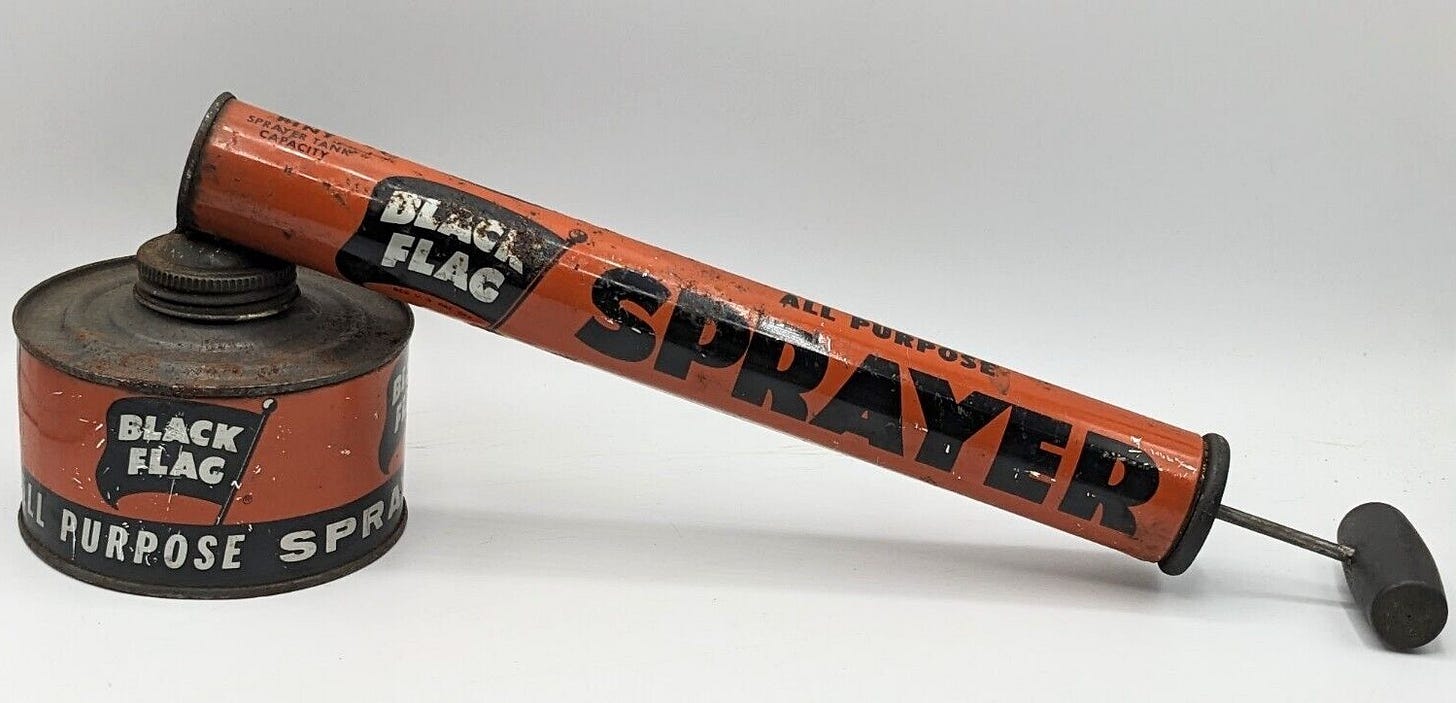
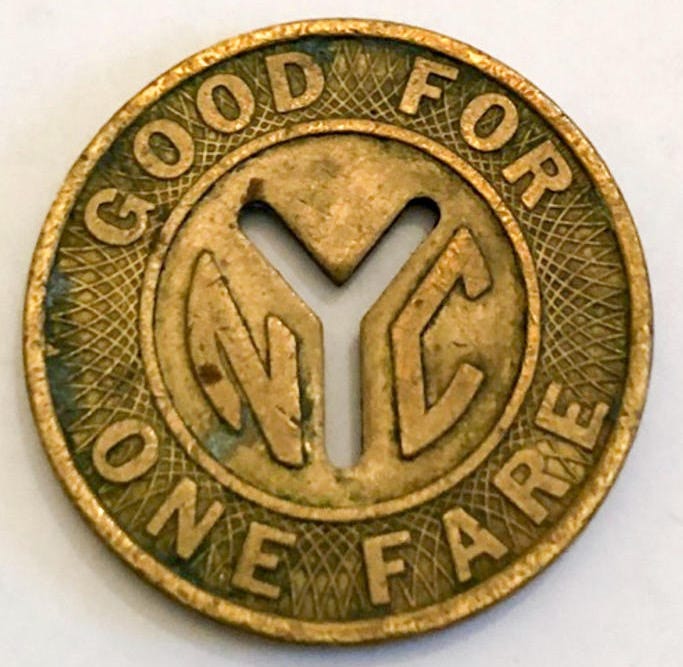
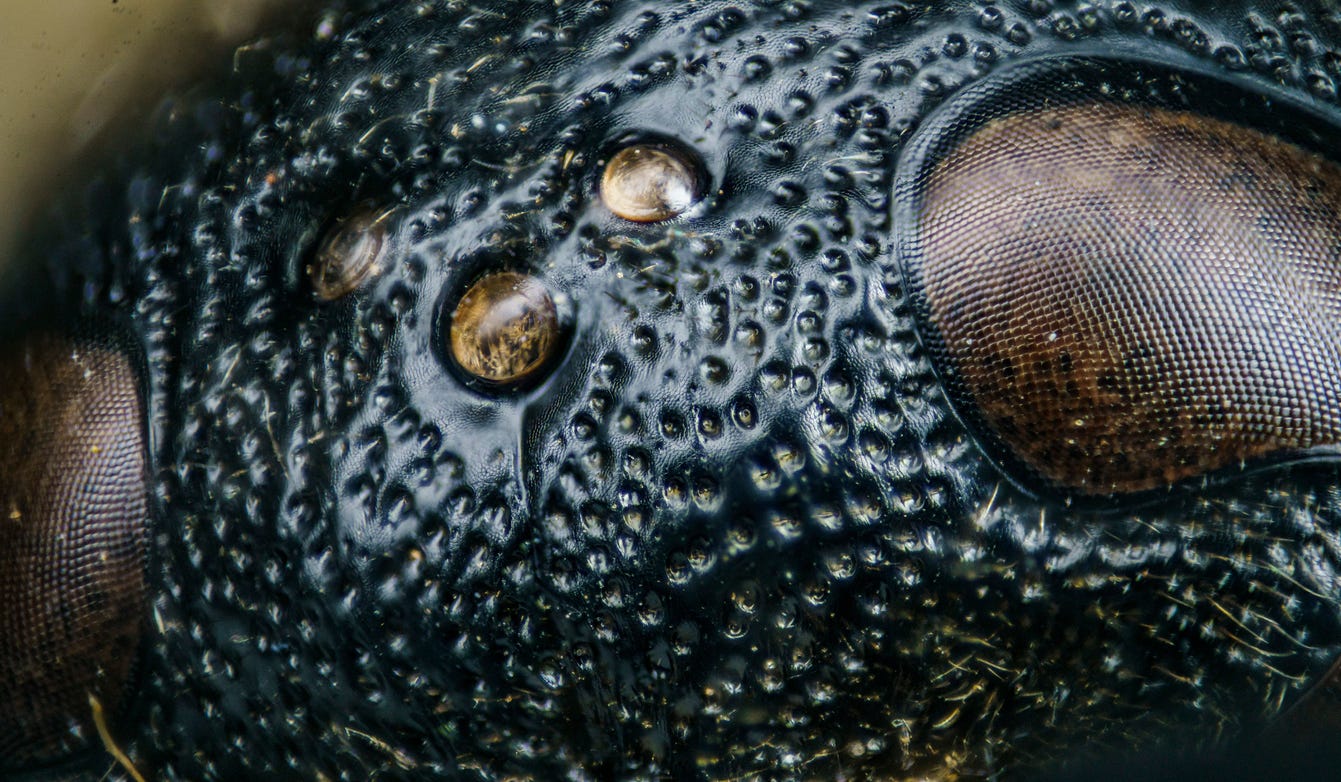
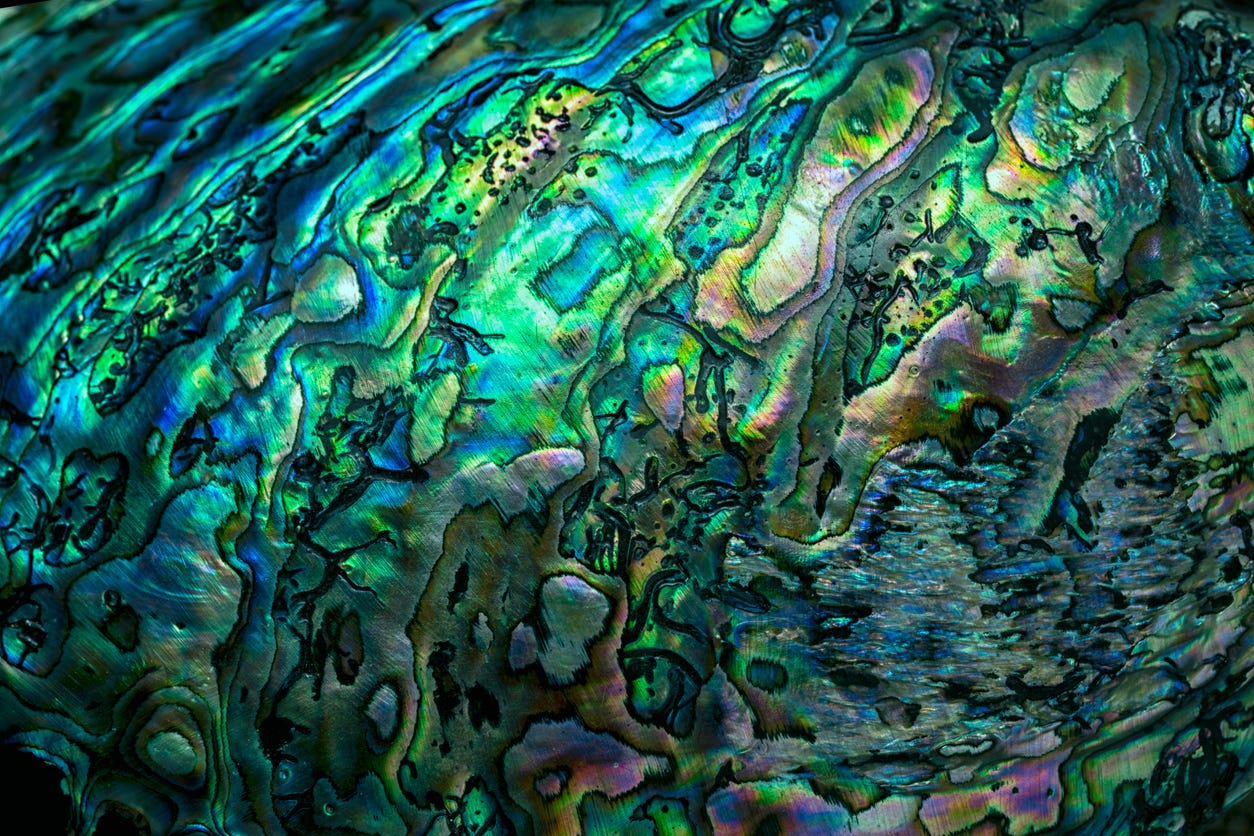
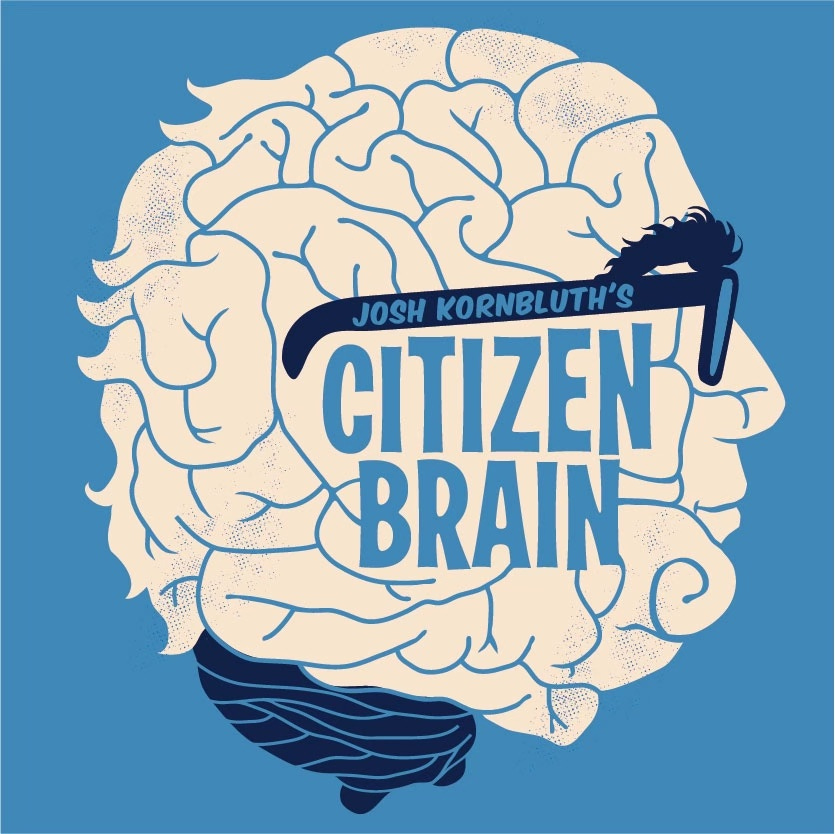
Hi Josh! Looking forward to seeing you this Friday in San Rafael! It’s been at least a decade since I saw you perform the “Ben Franklin: Unplugged” show in Mill Valley, and perhaps two! I was the person who commented to you about your intermission music coming from the stage production of “1776.”
Really deep, the deepest yet. The physical armor is gone, and now to work on the emotional
armor. You said it all. This is really universal. When it's not fat, it's something else that we use
as armor. I'm gonna shut up and think some more about this. Thanks.